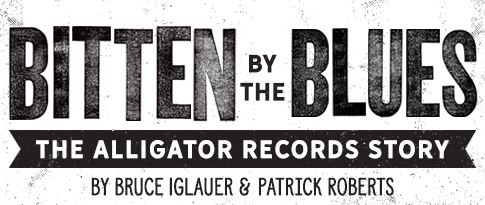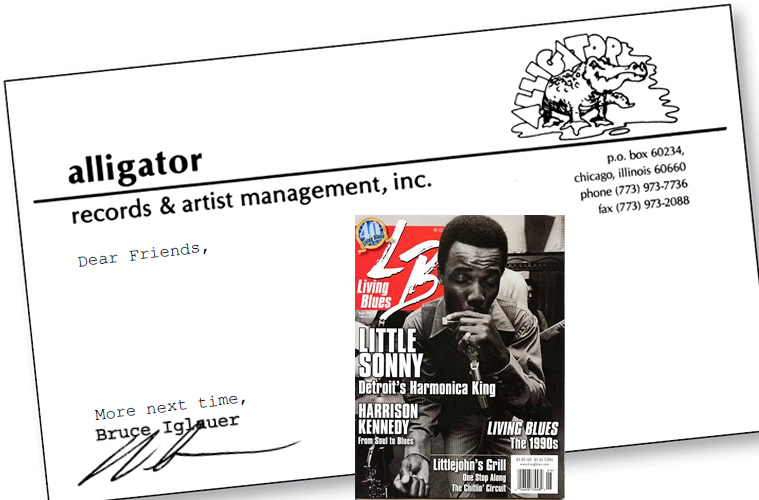Dear Friends,
I just returned from the 31st annual Blues Music Awards in Memphis, happy and proud that Tommy Castro won in every category in which he was nominated, including B.B. King Entertainer of the Year and Contemporary Blues Album of the Year for Hard Believer. Tommy was especially thrilled by the Band of the Year award, because it gave credit to his very hard-working group. Buckwheat Zydeco also won in the Instrumentalist–Other category for his terrific accordion playing.
Still, in looking at the nominees and winners, I can’t help but notice that over time, the BMA winners are moving from being the veteran African-American artists who grew up in the tradition to younger (and whiter) interpreters. Of course these new winners have plenty of talent, but I’m concerned that some newer blues fans may be simply less aware of the tradition and culture of the blues, and mostly aware of the current touring artists. Or maybe I just can’t define “the tradition” the way I used to (and I don’t mean strictly on racial lines–Charlie Musselwhite is certainly someone who has lived his whole life in the blues culture). Happily, The Blues Foundation’s Hall Of Fame continues to honor artists from the tradition. Lonnie Brooks, like Charlie Musselwhite and Bonnie Raitt, was overjoyed to be inducted this year. I was thrilled to accept an award for Classics of Blues Recording for Fenton Robinson’s wonderful 1977 Alligator album, I Hear Some Blues Downstairs. I only wish Fenton were still around to have received it himself.
Right now we’re enjoying the acclaim for Janiva Magness’ new album, The Devil Is An Angel Too, and Anders Osborne’s American Patchwork. Janiva’s masterful combination of blues, Memphis-style R&B and soulful ballads is being hailed as her best album ever. And though Anders would by no means call himself a blues artist, the raw passion of his roots rock is certainly infused by the emotions of the blues. Of course you can hear samples of both albums on our jukebox at www.alligator.com.
At the end of May, we’ll be releasing the second Alligator album by the titans of Texas blues guitar, Smokin’ Joe Kubek and Bnois King. It’s called Have Blues, Will Travel, a totally appropriate title for this duo, who have spent more than 20 years on the road together. They trade fiery guitar solos to reinforce Bnois’ wry, storyteller’s vocals and slice-of-life lyrics. Have Blues, Will Travel presents a dozen new, original songs. Although the media usually concentrates on their incendiary guitar work, Joe and Bnois deserve equal fame for the depth and wit of their compositions. Listen and you’ll hear for yourself. There’s a free download at www.alligator.com on the “Goodies” page.
I was telling you last time about the making of Cold Snap, Albert Collins’ 1986 classic album. After tracking down Albert’s organ-playing hero, Jimmy McGriff, and getting his commitment to fly to Chicago and join us in the studio for two days, we put together the rest of the recording band. Albert’s long-time drummer, Casey Jones, had left Albert’s road band, so we recruited the rock-solid Chess Records studio veteran Morris Jennings. The brilliant Johnny B. Gayden of course would play bass, as he had on most of Albert’s previous Alligator releases. Albert asked his pal Mel Brown to fly up from Austin, bringing a wealth of experience and creativity to the rhythm guitar spot. Of course, we needed fresh new songs for the album. Albert wasn’t a prolific songwriter; he had only one new song, a slow blues called Lights Are On But Nobody’s Home. He had been doing a version of Clarence Carter’s Snatchin’ It Back in his live set, so we put it on the “A” list. As usual, Albert looked to his production team for more tunes. My co-producer Dick Shurman brought the obscure (and now famous) shuffle A Good Fool Is Hard To Find, originally done by Bobby Kimble. From contemporary blues writers, we found new tunes from the prolific Doug MacLeod, and a previously unknown (to me) writer named John Brady. We were set for the first session, but I almost managed to screw up everything.
More next time,
Bruce Iglauer

